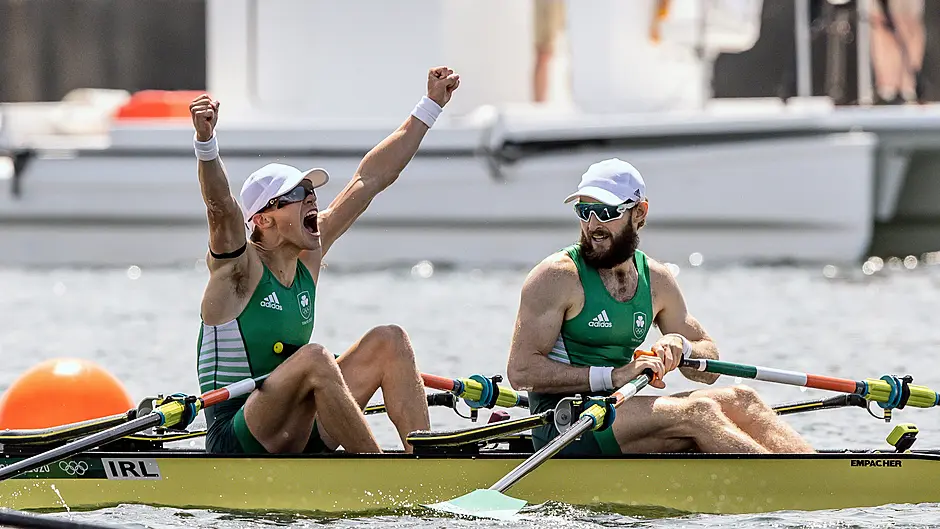BY MICHEÁL O'SULLIVAN
AFTER winning the 2011 US Open Rory McIlroy said that ‘with success comes expectation and I know the expectation on me is going to be pretty high’, confident in his ability to handle the superstar pressure.
Expectation in sport is the mother of all evils in its effect on athletic performance. It's like a weighted chain around the neck of any GAA player or sportsperson. How often have we seen a team or individual in the position where they are expected to win and it all goes badly wrong.
I can relate to this in my own playing days, in the era before sports psychology and sports psychologists became prolific and the importance and emphasis placed now on the mental approach to sport. Carbery Rangers got through to the 1996 West Cork final against Ilen Rovers, who were an improving and up-and-coming team at the time. We were favourites and expected to win. We felt ourselves it was our time and that we deserved this one. We were looking ahead to the outcome and got destroyed in Dunmanway as a result.
Expectations are judgments and demands you place on your performance, usually about outcomes or game statistics such as the number of points scored in a game. Expectation is often confused with overconfidence. For me confidence was always based on the strength of the belief in your own ability or how strongly you believe in your skill-set. When you're confident as a player or athlete of any kind it does not demand that you perform great, unlike expectations.
When you are playing with confidence you are not judging the quality of your performance on prior expectations, you are trusting the process and playing in the moment. So why are expectations so harmful to your confidence? From my experience, if you don’t achieve them it leads to you questioning your ability and, as a result, losing confidence. As a player, replacing expectations with short-term achievable goals and building confidence through practise helped to improve my performance.
With the Olympics dominating our sporting viewing these past few weeks, it got me thinking about how these athletes deal with the pressures of expectation that come with representing their country. Paul O’Donovan and Fintan McCarthy, two mighty Skibbereen men, went into their competition as hot favourites. They were also World and European champions in the lightweight men’s double sculls. They were expected to win gold. That’s not an easy position to be in, given how unpredictable sport is. But O’Donovan and McCarthy dealt with the incredible expectation that surrounded them, focused on their performance and came away with Olympic gold medals. What an achievement.
I was interested to watch their post-heat and post-final interviews and the focus from the two Skibb rowers was always on breaking the race down into four 500-metre pieces and hitting their targets per section. Taking the focus off the outcome as a result. After they won gold in Tokyo, Fintan McCarthy, coming off the biggest race of his life, told RTÉ: ‘It is bizarre, I have been pretty chilled out all day. Usually, I would be a bit more nervous. I felt really prepared and you know how that expectation and stuff doesn’t really weigh too heavily on us. We just do what we always do as best we can and it worked.’
O’Donovan, even more so, isn’t flustered by expectation; he doesn’t let it affect him in the slightest. He has four World gold medals and two European gold medals, and now has two Olympic medals, one gold and one silver, and handles the tag of favourite so comfortably. He said: ‘I don’t believe in performance anxiety for me. Whatever happens, happens. If you don’t win, life goes on so it’s okay. I didn’t win in Rio and, sure, I was happy out afterwards.’
Closer to home, Dublin footballers have dealt brilliantly with the expectation of winning All-Ireland titles year after year after year. They’ve won six-in-a-row. In an interview after last year’s All-Ireland final victory over Mayo, Dublin defender Johnny Cooper said ‘We know how to stay calm and execute and being able to execute under pressure was the key one for us, just knowing to stay composed and stay calm’. The focus is always on the process, not the outcome.
Kerry are now favourites with the bookies to win the All-Ireland and seen as the team with the best credentials to end the bid for seven-in-a-row. How will they cope with the expectation against Tyrone on August 21st with everybody anticipating the dream Dublin versus Kerry final?
The Ulster final two weeks ago was an enthralling encounter and turned into a battle of the goalkeepers. Niall Morgan pushed up as far as his own 65-metre line in the first half, cutting off one full side of space and flummoxing Rory Beggan’s restarts. In the second half Beggan spent as much time around the middle third of the field as he did on his own goal-line. His last-ditch tackle on Mattie Donnelly and the subsequent flicked pick up and clearance will no doubt make the end of season highlights’ reel. How the role of the goalkeeper in football is evolving at the moment is fascinating.
Tyrone have a new management, are developing a new, less-defensive style and are battle hardened having come through Ulster. Kerry are relatively untested apart from Dublin in the League and will go into this game a little undercooked.
Returning to McIlroy for the final words on coping with expectation. He said: ‘I kept telling myself this word, process, focus on my process, don’t care about the result.’
Would it be mad to suggest a Mayo v Tyrone final?











